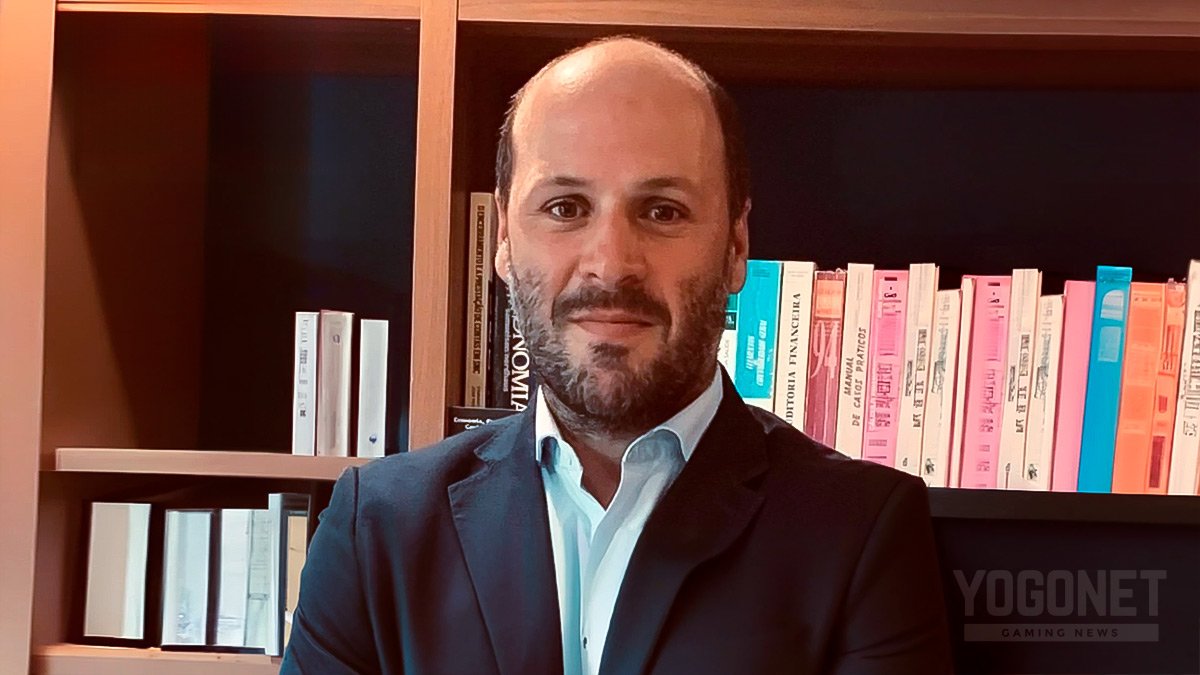Angelo Alberoni: "We will have such a competitive market that Brazil will stand out in the international iGaming environment"

In May, Angelo Alberoni was appointed technical director of the Brazilian Institute of Responsible Gaming (IBJR). A law graduate with a master's degree in sports management, Alberoni is also the national director of the company Novibet.
In an interview granted to Yogonet, he talked about his new position, the advances in the regulation of online gambling, and the debate surrounding the legalization of casinos in Brazil.
Alberoni expressed his opposition to the possibility of online gambling being taxed with a Selective Tax (a tax on products considered harmful to health or the environment), an idea that was debated by members of the Tax Reform regulation working group.
You have taken over the technical direction of the IBJR at a very important time for the sector, with the advance of regulations and the publication of ordinances. Can you share with us a little bit about your functions in this new position?
Being part of IBJR as technical director is an honor for me, because I consider extraordinary all the work done so far, positioning the institute as an important player in shaping the Brazilian regulated market.
Regarding my role specifically, the most important thing is to provide support from the technical point of view, involving issues related to the product and other variables of our segment, so that IBJR continues to contribute to this vision of a regulated market, in a healthy and viable way for its stakeholders, including consumers, companies and the State.
How do you value the ordinances published so far, and is Brazil following the right path in building a regulated, competitive, and sustainable market?
We are on the right track. The SPA [Secretariat of Prizes and Gambling] has done an interesting job, mainly by listening to the betting sector and understanding that many of the companies have already gone through these regulatory issues (taxation, responsible gaming, money laundering, etc.) in other jurisdictions, which was fundamental for the construction of this list of ordinances drawn up by the regulatory authority.
Following these guidelines, I believe we will have an extremely competitive market capable of attracting investment capital to the point of positioning Brazil as a leading figure in the international iGaming environment.
A recent report in the Exame magazine states that there are still some doubts and uncertainties in the sector. One of them is which games will be allowed: the text of the legislation speaks of fixed odds bets (in which the bettor knows in advance the amount he can win), but there are, for example, shock games, with multipliers in which the prizes change. On the other hand, some believe that the doubts have already been resolved by the ordinances and it is up to the companies to adapt to the rules. Is there any uncertainty about this?
The definition of fixed odds betting as a lottery product in the text of the 2018 Law generated confusion when it came to including and subsequently classifying online games. This is coupled with the novelty and popularity of so-called 'bump games', which indeed have their peculiarities compared to traditional online games.
This debate is still open, and the IBJR is working to clarify the issue by seeking help in another market, in this case, Italy, so that these types of games are considered to meet the legal requirements, to the point of being included in the list of games to be offered to the public after regulation.
It is not an easy task, but I believe that we will provide the regulator with the means to offer as many games as possible to the Brazilian public, including crash games, which are very popular among consumers in the local market.
Of course, their existence must depend on a strong advertising policy, in which those who take advantage of these games with messages that irresponsibly incite gambling, with the promise of easy profits, whether it is an influencer or the company itself, will be exemplarily punished.
Some deputies are proposing to include online gaming in the excise tax. How do you see this possibility and the consequences it would have for the sector?
I see it as worrying. IBJR's position, which I also share, is that there is already a gambling tax, whose purpose is social, which is the reason for creating a Selective Tax.
The Brazilian State needs to understand that excessive taxation will have the opposite effect on the market and will frustrate the expectation of revenue since an unfair tax burden will cause the channeling of activity to be extremely low, as happened in Portugal at the beginning of its regulation.
There, with high turnover taxes, the illegal market supplied 70% of gamblers, frustrating the State's ability to collect revenues. Thus, the creation of a new tax in Brazil is something that may lead to a reduction in revenue collection, frustrating the government's expectations, as this will scare away not only gamblers but mainly companies, that work with high investments in marketing with low profit margins.
Bill 2.234/22 is being debated in the Senate, which legalizes casinos, bingos and gambling. After so many years of prohibition, do you think that Brazil will finally regularize these games? How to convince the public opinion (which mentions the concern about gambling and money laundering) of the positive points of the initiative?
Despite the favorable opinion of the rapporteur, bill 2.234/22 had its vote postponed in the CCJ (Commission of Constitution, Justice, and Citizenship), which also postpones the opening of a market that could generate thousands of jobs, direct and indirect, capable of contributing to the local economy, especially in places with great tourist potential still unexplored in Brazil.
Of course, issues related to gambling and money laundering are crucial and of great concern, as they are related to responsible gambling, IBJR's main banner. However, today there are already numerous mechanisms in place that can curb such derivations of the activity. Brazil's banking and tax systems are among the most modern in the world, and we already have the tools to mitigate almost zero the risk of money laundering related to our activity.
Regarding gambling, IBJR members have their own policies, in addition to following the best practices of the international market, where the protection of consumers, especially their health, is a non-negotiable point when a problem is identified.
Therefore, I do not understand that these issues can be reasons to block the full legalization of gambling in Brazil, as there are already tools capable of mitigating these challenges before they occur.
















































